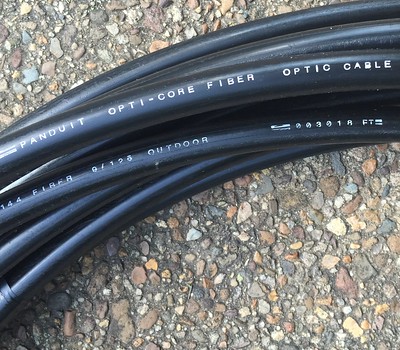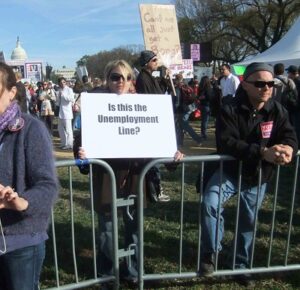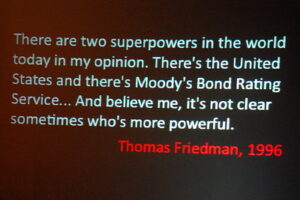In last night’s Board meeting, the WCC Trustees approved a contract for fiber installation on campus. The $220,000 contract was awarded to Challenger Technologies of Jackson. The action raises the question of why WCC finds it so difficult to conduct free, fair and open purchasing. According to the motion offered by the WCC Administration:
“After review of the bids, Challenger Technologies was selected as the best qualified vendor for these reasons:
• We have used them before and they do excellent work.
• They were the only vendor of the 3 vendors invited who submitted a bid.”
The fact that only one company provided a bid is a big problem. In public purchasing, when you receive only one bid, that does not qualify as a “competitive” bidding process. (Keep in mind that the College’s Trustees require a competitive bidding process for any purchase over $25,000.)
The bigger problem is this:
… of the 3 vendors invited …
Invitations to Bid (ITB) are one way in which public entities conduct certain purchasing processes. Usually, an issuer uses an ITB for high-dollar purchases when it understands the purchase very well, and it is purchasing a commodity. In commodity purchasing, there will be no significant qualitative differences between any proposals. In other words, the purchaser is selecting a provider solely on price.
The other requirement of an ITB is that the issuer pre-qualifies all interested bidders. Prior to issuing an ITB, the purchaser identifies as many firms as possible that can provide the product or perform the service. All qualified firms are supposed to receive an invitation. That’s how the institution is supposed to preserve the free, fair and open purchasing requirement.
Sloppy ITBs eliminate free, fair and open purchasing
So naturally, the trouble with ITBs is manifest.
ITBs artificially limit the competition
If the intention of an ITB is to purchase based solely on price, then limiting the competition is stupid. If the purchase is truly a commodity, the only way to reach the best possible price is by casting as wide a net as possible. To put this in context, there are more than 225 fiber optic cable installation firms that provide services in Michigan. WCC effectively limited the “competition” for this particular work to less than 1.5% of the firms that regularly perform this work in Michigan.
A competition of one is NOT competition
An ITB that results in ONE sealed bid is a failure of an open purchasing process. A single bid does not achieve the purpose of an ITB, which is to uncover the lowest price for a commodity purchase. The issuer did not receive enough information to know whether they have received the lowest possible price. With no points of comparison, the correct move would have been to scratch and start the purchasing process again, with a larger invitation list. The kindest interpretation of this is that WCC did not anticipate the possibility that one or more of their three invited bidders would not submit a bid.
Going with the lowest possible price has its down side
The ideal outcome of an ITB is good. Find the lowest possible price for a known commodity. The reality is that the low bid is for a commodity is always suspect. All possible providers operate under the same market constraints, so the price of the commodity is going to be very similar. At best, an ITB either turns up inconsequential savings, or bidders that cut corners to achieve the lowest possible price. In this particular case, it’s academic because the WCC Administration recommended – and the Board approved – a purchase knowing only that the College got A price. The process did not develop any information about market conditions.
The purchase appears to violate the Board’s policy on purchasing
Board Policy 6050 lays out clear requirements for high-dollar purchasing that involves construction or renovation.
“For renovation and construction purchases (materials and services) of $10,000 or more, the College shall seek at least three bona fide quotations. For renovation and construction contracts costing in excess of $50,000, the College shall seek to obtain at least three (3) formal sealed bids. Construction projects costing more than $100,000 shall be advertised in the appropriate trade and/or local general circulation publications.”
Once again, the failure here belongs to the WCC Trustees. First, their policy all but precludes ITBs for high-dollar contracts. Second, the requirement that the Administration “seek to obtain at least 3 formal sealed bids” is wholly insufficient for public purchasing. The Board should insist that no purchasing decision can be made without having received a minimum of 3 sealed bids. Third, the WCC Trustees never should have signed off on this contract. What does it mean when the Administration deliberately games the purchasing rules, and the Trustees fully cooperate with that? Who exactly is looking out for the taxpayers? This episode in bad contracting parallels the no-bid IT outsourcing contract. Poor oversight enables mismanagement.
Taxpayers should ask themselves why even have WCC Trustees when we cannot trust them to follow their own damned rules?
Photo Credit: Steven L. Johnson, via Flickr
























